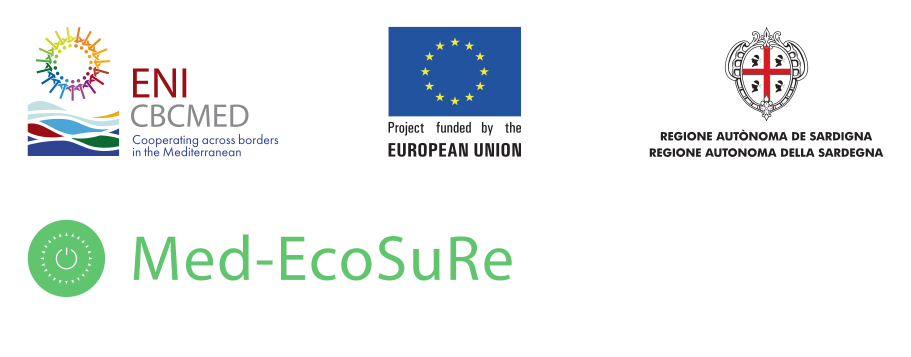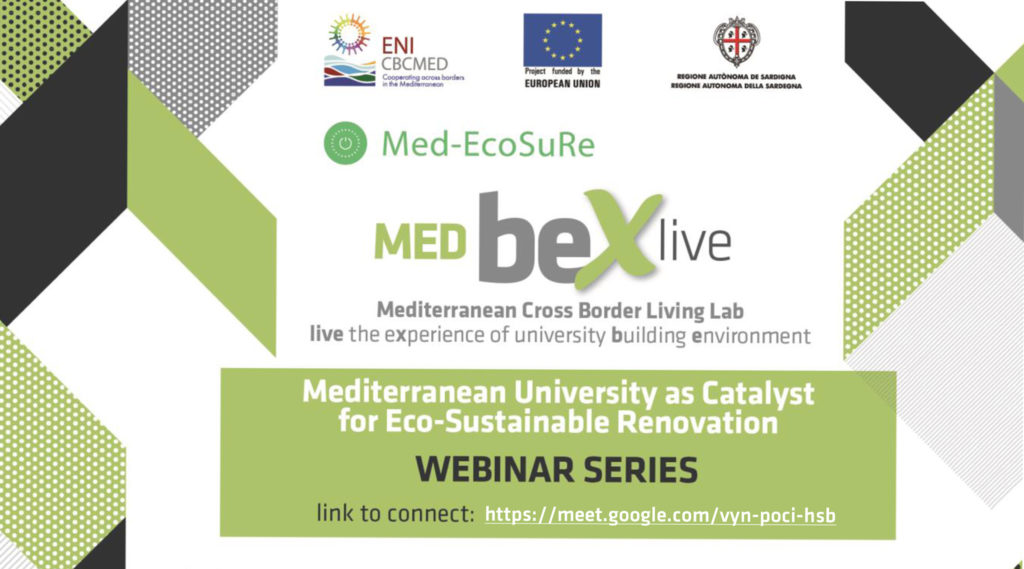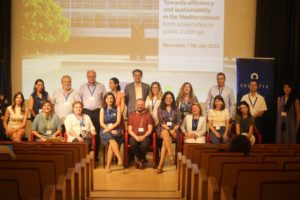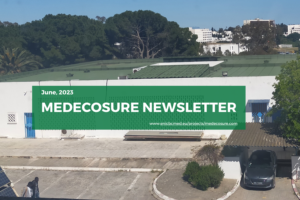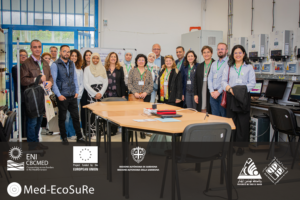Due to the global spread of the Covid-19 pandemic, and in order to overcome the impossibility of the physical meetings to implement the activities foreseen by the Med Eco-SuRe project (conferences, seminars and workshops), a series of webinars was organized to launch MED beX.live (University Buildings as a Living Experience), the virtual counterpart of the Mediterranean Cross Border Living Lab (MCbLL).
In line with the Med-EcoSuRe project’s objectives, MED beX.live exploits the digital advancements, unavoidable in this emergency period, to stimulate both the cross-border cooperation between partners (within international networks of excellence) and, at the local level, the collaboration with stakeholders (i.e. for the development of the pilots).
The Med-EcoSuRe team also welcomed the ENI CBC MED proposal to take advantages from the emergency situation for creating bridges between projects financed under the same programme (Addressing environmental protection, climate change adaptation and mitigation), in order to share knowledge and best practices on similar topics. Focusing on the energy rehabilitation of university buildings, Med-EcoSuRe project works on the priority of “supporting cost-effective and innovative energy rehabilitations, relevant to building types and climatic zones, with a focus on public buildings”. ENI CBC Med projects under the same priority involved in the webinar series were BEEP, BERLIN, ESMES and GreenBuilding.
Covering interconnected themes on eco-sustainable university renovations in the Med-Area investigated by the Med-EcoSuRe project, five webinars tried to answer to the following questions:
How to implement sustainable policies with a cost-effective approach for construction and building renovation?
How to perform energy efficient renovation of school buildings and its integration into education programs and education environments?
How may technology, especially BIM Methodology, accelerate growth and competitiveness in the building sector?
How to implement the techno-economic assessment of on-grid solar PV systems?
How can cost-effective energy efficiency and high-tech renewables take place in isolated zones/towns?
The MED beX.live Webinar Series was dedicated to the following target audience:
Energy managers and technicians from the “Infrastructure and Buildings” departments in universities;
Decision-makers/managers on energy efficiency in public buildings;
Professors and students interested in energy policies and regulatory and technical aspects of energy efficiency in buildings;
Key Actors (companies, experts, manufacturers, architects, etc.) with activities related to energy efficiency in buildings;
Public Bodies and Municipalities engaged in energy efficiency interventions on public buildings;
Energy and Facility managers, and technicians, of Public Bodies and Municipalities in charge of energy efficiency in public buildings.
A summary of the webinar series is available here
The full reports of all the webinar organised are available in the following links:
1st MED beX.Live webinar_ How to implement sustainable policies with a cost-effective approach for construction and building renovation?
2nd MED beX.Live webinar_ How to perform energy efficient renovation of school buildings and its integration into education programs and education environments?
3rd MED beX.Live webinar_ How may technology, especially BIM Methodology, accelerate growth and competitiveness in the building sector?
4th MED beX.Live webinar_ How to implement the techno-economic assessment of on-grid solar PV systems?
5th MED beX.Live webinar_ How can cost -effective energy efficiency and high-tech renewables take place in isolated zones/towns?

